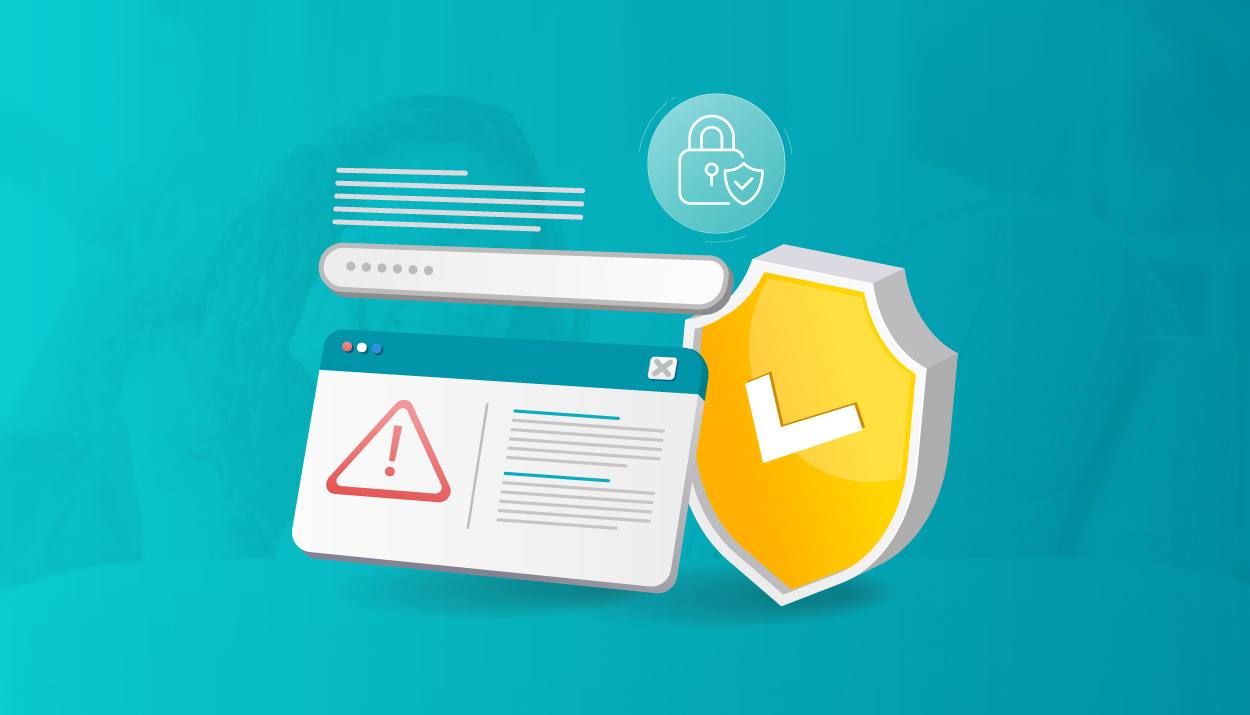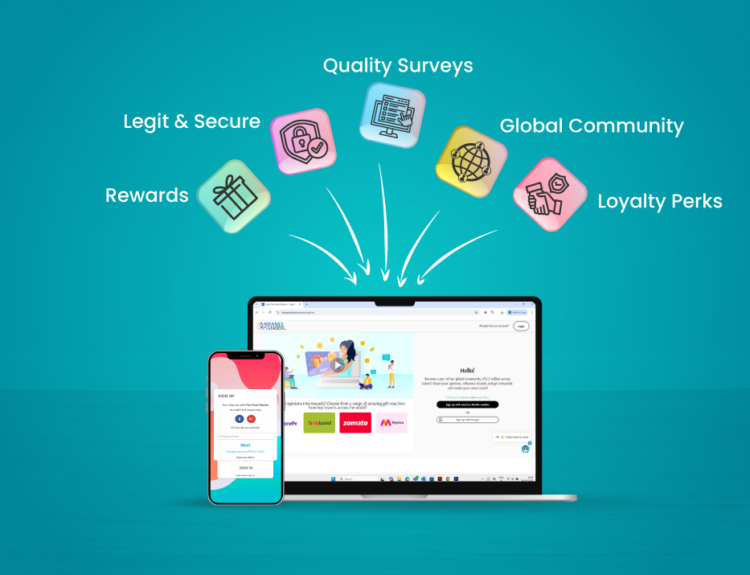A 15-minute survey, a few simple questions, and you’re rewarded with gift cards or cash — sounds like a pretty sweet deal, right? So, naturally, you sign up!
At first, it’s all basic stuff: name, age, and location. But then come the deeper questions: income, lifestyle, and maybe even your spending habits. You pause for a second. Should you go ahead or back out?
Sure, detailed profiles help survey platforms match you with the right opportunities, and that’s fair. But here’s the catch: not every site handles your personal info the way it should. While some survey sites take privacy seriously and follow strict protocols, others might be a little too relaxed (or worse, shady) about it.
So, should you ditch the idea of surveys altogether? Not at all! Online surveys can still be one of the easiest, most flexible ways to earn on the side. The key is knowing which platforms to trust.
Let’s break down some of the biggest survey site privacy concerns and how you can stay safe while still getting rewarded for your time!
What You’re Really Sharing: The Data Survey Sites Ask For
Let’s start at the root: what exactly do survey sites ask for when you hit “Sign up”?
It begins with a simple form: name, email, location — nothing unusual there! But once you’re in, the real data collection starts.
Here’s what most platforms typically ask for:
- Basic personal details
Think name, age, gender, email address, and location; just enough to set up your account.
- Lifestyle and demographic information
This includes your job title, education level, income range, marital status, number of kids, etc.
- Consumer habits
Like how often you shop, what brands you use, where you travel, how much time you spend on streaming platforms, etc.—the kind of stuff brands love to know!
These details help survey platforms connect you with relevant opportunities, and they help brands understand what real people like you want.
But here’s the catch: Some platforms go a step too far. Now that’s where survey site privacy concerns creep in.
Unfortunately, not all platforms draw the line where they should and go further inquiring about intrusive and sensitive details.
Caution: Watch out if a survey site asks for:
- Banking details before payout
- Real-time location tracking (outside survey context)
- Device access (like camera, gallery, contacts, etc.)
Those are red flags! These details aren’t necessary for surveys and definitely not worth risking your privacy!
So, how do you separate the safe from the sketchy? We’ll break that down next.
5 Key Signs to Check for When Picking Secure Survey Platforms
Let’s be real! Your personal data is valuable. In 2024 alone, over 1 billion personal records were exposed due to data breaches. That’s not just a scary number, it’s a reminder to tread carefully when signing up on any platform, especially survey sites that ask for your details upfront.
The question is, how do you ensure you’re signing up on a platform that’s actually worth your trust?
Here are 5 must-check indicators that a survey site values your data and plays by the rules:
Essential certifications
Safe survey platforms stick to internationally recognized security certifications that prove they’re protecting the data they collect. These include:
- ISO/IEC 27001:2013: Shows a company securely stores and manages your data with systems to prevent leaks, breaches, and mishandling.
- ISO/IEC 27701:2019: Focuses on personal data protection and privacy concerns, ensuring your sensitive information stays safe.
- GDPR (General Data Protection Regulation): Ensures you have clear rights over your data – what’s collected, how it’s used, and how to get it deleted.
- CCPA (California Consumer Privacy Act): Offers similar protection, giving you more control over your personal data and how it’s shared with third parties.
Secure login and data encryption
A trustworthy survey platform doesn’t wait until you hit “Submit” to start protecting your data; security begins the moment you log in!
Here’s what to look for:
- HTTPS: At a minimum, the site should run on HTTPS, which ensures all data you enter is encrypted during transmission.
- Two-factor authentication (2FA): Adds an extra layer of login security by confirming it’s really you trying to access your account.
- Firewall protection: Blocks unauthorized or suspicious access attempts to keep hackers at bay.
- End-to-end encryption: Ensures your data stays protected not just in transit but also while stored — readable only to authorized personnel with strict access controls.
Secure survey platforms like the Panel Station go the extra mile by combining all of the above, giving users peace of mind at every step.
Transparent privacy policies
There’s no hiding here – most participants scroll past the lengthy privacy policies like they’re just boring legal filler. But when you’re about to hand over your data, it’s exactly the thing you shouldn’t be ignoring!
Here’s what to look for in a trustworthy privacy policy:
- What data they collect: The platform should clearly outline what personal details they gather, like your demographic info, survey responses, and possibly device data (if relevant).
- How survey sites use your data: Are they using it for legitimate research? To match you with better surveys? To reward you fairly? These reasons should be upfront and transparent.
Aggregated and anonymous reporting
Beyond just protecting personal info on survey sites, the right platforms go a step further to protect your identity when sharing survey results.
Here’s how they do it: through anonymization and aggregated reporting.
Instead of linking your answers back to you, platforms group your responses with thousands of others. This way, brands still get the insights they need, like what Gen Z shoppers think about a new product, but no one can trace the feedback back to you personally.
You stay anonymous, your data stays protected, and your voice still gets heard. Win-win!
Clear opt-out and deletion controls
Privacy isn’t just about what platforms collect; it’s also about how much control you have over it. The ability to opt out, limit tracking, or delete your data entirely is a clear sign of a platform that respects your rights.
But here’s the flip side: while some survey sites get it right, others don’t.
Online Survey Privacy Risks: 5 Red Flags to Watch Out For
Now that you know what to look for, it’s just as important to know what to avoid. Some sites may seem secure on the surface but reveal clear warning signs once you scratch beneath. So, when you’re wondering, “Is it safe to join survey ” sites,” these are the signs to watch out for:
- Asks for highly sensitive personal documents like your government ID, utility bills, or banking information without a clear reason.
- Requests unnecessary permissions, such as access to your microphone, GPS, contacts, or other device features unrelated to survey-taking.
- Has a poorly maintained or sketchy website with broken links or missing privacy policy pages.
- Makes unrealistic earning claims like promising hundreds of dollars a week for doing a few quick surveys. If it sounds too good to be true, it probably is.
- Uses vague language in privacy terms, especially phrases like “other identifiers” without explaining what it actually means.
Protecting Your Privacy: 5 Smart Habits to Practice
- Use a dedicated email address just for survey platforms. It helps you stay organized; spot survey invites quickly, and keeps your personal inbox clutter-free.
- Set strong, unique passwords that you don’t reuse elsewhere. Repeating passwords across multiple sites puts all of them at risk if one gets compromised.
- Enable two-factor authentication whenever it’s available. That extra layer of security can block unauthorized access even if someone gets hold of your password.
- Be selective with the information you share. If a question feels too personal or unnecessary, it’s okay to skip it — your privacy comes first.
- Take a minute to review and adjust your notification settings. Limiting unwanted emails not only reduces inbox noise but also helps you stay in control of the info you receive.
Stay Protected and in Control with The Panel Station
So, is it safe to join survey sites? YES! That is, if you know what to look for and when to walk away.
That’s where The Panel Station stands out. With transparent policies, global security certifications, and a reward system that actually delivers, we help you earn confidently! Yes, no shady fine print, no oversharing required, and no data misuse.
Ready to get started? Join The Panel Station today and experience what secure, rewarding survey-taking should feel like.
FAQs on Survey Sites and Privacy
- Can survey companies track my other online activities beyond the survey platform?
Yes, some survey sites use cookies or tracking tools to understand your browsing habits for targeting or profiling. You can find out about the extent of this tracking in their privacy policy.
- What happens to my survey responses if a company gets acquired or goes out of business?
Depending on the platform’s terms and conditions, your data may be passed on to the new company or sold as part of the business deal.
- Should I use my real name and address on survey platforms?
Using your real details is often necessary to confirm your identity and receive rewards. If you’re on a secure platform, your information will be protected, so it’s generally safe to provide accurate info.
- How can I verify if a survey site has experienced data breaches in the past?
Try checking cybersecurity forums, news reports, and user reviews on platforms like Trustpilot or Google to see if there’s any history of breaches.
- Is it safer to take surveys on mobile apps or desktop websites?
Trusted mobile apps may offer better security through device-level protections. However, HTTPS-enabled desktop sites with solid privacy policies are equally safe when used responsibly.









